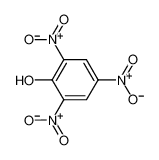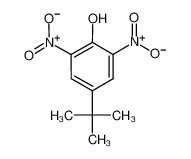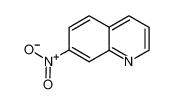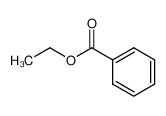1.Identification
1.1 GHS Product identifier
| Product name | Picric acid |
|---|
1.2 Other means of identification
| Product number | - |
|---|---|
| Other names | Picronitric acid |
1.3 Recommended use of the chemical and restrictions on use
| Identified uses | For industry use only. |
|---|---|
| Uses advised against | no data available |
1.4 Supplier's details
| Company | MOLBASE (Shanghai) Biotechnology Co., Ltd. |
|---|---|
| Address | Floor 4 & 5, Building 12, No. 1001 North Qinzhou Road, Xuhui District, Shanghai, China |
| Telephone | +86(21)64956998 |
| Fax | +86(21)54365166 |
1.5 Emergency phone number
| Emergency phone number | +86-400-6021-666 |
|---|---|
| Service hours | Monday to Friday, 9am-5pm (Standard time zone: UTC/GMT +8 hours). |
2.Hazard identification
2.1 Classification of the substance or mixture
Explosives, Division 1.1
Acute toxicity - Oral, Category 3
Acute toxicity - Dermal, Category 3
Acute toxicity - Inhalation, Category 3
2.2 GHS label elements, including precautionary statements
| Pictogram(s) | 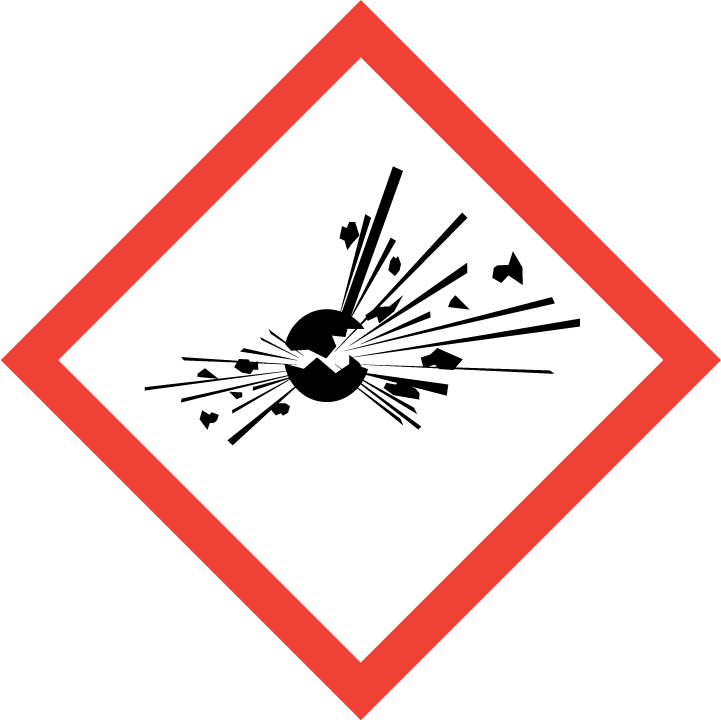 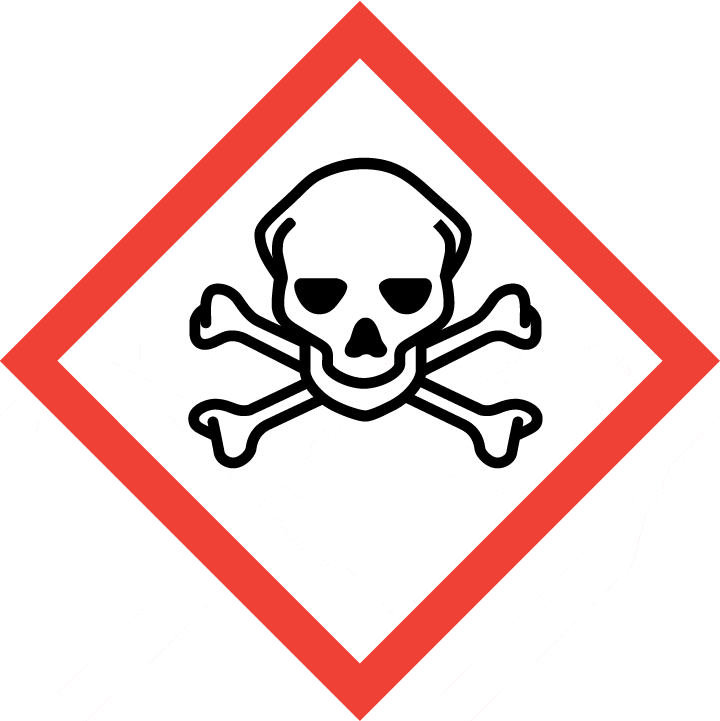 |
|---|---|
| Signal word | Danger |
| Hazard statement(s) | H201 Explosive; mass explosion hazard H301 Toxic if swallowed H311 Toxic in contact with skin H331 Toxic if inhaled |
| Precautionary statement(s) | |
| Prevention | P210 Keep away from heat, hot surfaces, sparks, open flames and other ignition sources. No smoking. P230 Keep wetted with … P234 Keep only in original packaging. P240 Ground and bond container and receiving equipment. P250 Do not subject to grinding/shock/friction/…. P280 Wear protective gloves/protective clothing/eye protection/face protection. P264 Wash ... thoroughly after handling. P270 Do not eat, drink or smoke when using this product. P261 Avoid breathing dust/fume/gas/mist/vapours/spray. P271 Use only outdoors or in a well-ventilated area. |
| Response | P370+P372+P380+P373 In case of fire: Explosion risk. Evacuate area. DO NOT fight fire when fire reaches explosives. P301+P310 IF SWALLOWED: Immediately call a POISON CENTER/doctor/… P321 Specific treatment (see ... on this label). P330 Rinse mouth. P302+P352 IF ON SKIN: Wash with plenty of water/... P312 Call a POISON CENTER/doctor/…if you feel unwell. P361+P364 Take off immediately all contaminated clothing and wash it before reuse. P304+P340 IF INHALED: Remove person to fresh air and keep comfortable for breathing. P311 Call a POISON CENTER/doctor/… |
| Storage | P401 Store in accordance with… P405 Store locked up. P403+P233 Store in a well-ventilated place. Keep container tightly closed. |
| Disposal | P501 Dispose of contents/container to ... |
2.3 Other hazards which do not result in classification
none
3.Composition/information on ingredients
3.1 Substances
| Chemical name | Common names and synonyms | CAS number | EC number | Concentration |
|---|---|---|---|---|
| Picric acid | Picric acid | 88-89-1 | none | 100% |
4.First-aid measures
4.1 Description of necessary first-aid measures
General advice
Consult a physician. Show this safety data sheet to the doctor in attendance.
If inhaled
Fresh air, rest. Refer for medical attention.
In case of skin contact
Rinse and then wash skin with water and soap. Seek medical attention if you feel unwell.
In case of eye contact
Rinse with plenty of water for several minutes (remove contact lenses if easily possible).
If swallowed
Rinse mouth. Give one or two glasses of water to drink. Refer for medical attention .
4.2 Most important symptoms/effects, acute and delayed
Exposure Routes: inhalation, skin absorption, ingestion, skin and/or eye contact Symptoms: Irritation eyes, skin; sensitization dermatitis; yellow-stained hair, skin; lassitude (weakness, exhaustion), myalgia, anuria, polyuria; bitter taste, gastrointestinal disturbance; hepatitis, hematuria (blood in the urine), albuminuria, nephritis Target Organs: Eyes, skin, kidneys, liver, blood (NIOSH, 2016)
Excerpt from ERG Guide 113 [Flammable Solids - Toxic (Wet/Desensitized Explosive)]: Some are toxic and may be fatal if inhaled, swallowed or absorbed through skin. Contact may cause burns to skin and eyes. Fire may produce irritating, corrosive and/or toxic gases. Runoff from fire control or dilution water may cause pollution. (ERG, 2016)
Excerpt from ERG Guide 113 [Flammable Solids - Toxic (Wet/Desensitized Explosive)]: Some are toxic and may be fatal if inhaled, swallowed or absorbed through skin. Contact may cause burns to skin and eyes. Fire may produce irritating, corrosive and/or toxic gases. Runoff from fire control or dilution water may cause pollution. (ERG, 2016)
4.3 Indication of immediate medical attention and special treatment needed, if necessary
Immediate first aid: Ensure that adequate decontamination has been carried out. If patient is not breathing, start artificial respiration, preferably with a demand-valve resuscitator, bag-valve-mask device, or pocket mask, as trained. Perform CPR as necessary. Immediately flush contaminated eyes with gently flowing water. Do not induce vomiting. If vomiting occurs, lean patient forward or place on left side (head-down position, if possible) to maintain an open airway and prevent aspiration. Keep patient quiet and maintain normal body temperature. Obtain medical attention. /Dinitrophenol and Related Compounds/
5.Fire-fighting measures
5.1 Extinguishing media
Suitable extinguishing media
This chemical is a flammable solid. Use flooding quantities of water, applied from a distance More powerful than TNT, picric acid explodes above 572 deg F (300°C). Use dry chemical, carbon dioxide, water spray, or alcohol foam extinguishers ... If material or contaminated runoff enters waterways, notify downstream users of potentially contaminated waters. Notify local health and fire officials and pollution control agencies. Containers may explode. From a secure, explosion-proof location, use water spray to cool exposed containers. If cooling streams are ineffective (venting sound increases in volume and pitch, tank discolors or shows any signs of deforming), withdraw immediately to a secure position ... The only respirators recommended for fire fighting are self-contained breathing apparatuses that have full facepieces and are operated in a pressure-demand or other positive-pressure mode.
5.2 Specific hazards arising from the chemical
Excerpt from ERG Guide 112 [Explosives* - Division 1.1, 1.2, 1.3 or 1.5]: MAY EXPLODE AND THROW FRAGMENTS 1600 METERS (1 MILE) OR MORE IF FIRE REACHES CARGO. For information on "Compatibility Group" letters, refer to Glossary section. (ERG, 2016)
Excerpt from ERG Guide 113 [Flammable Solids - Toxic (Wet/Desensitized Explosive)]: Flammable/combustible material. May be ignited by heat, sparks or flames. DRIED OUT material may explode if exposed to heat, flame, friction or shock; treat as an explosive, refer to ERG Guide 112. Keep material wet with water or treat as an explosive, refer to ERG Guide 112. Runoff to sewer may create fire or explosion hazard. (ERG, 2016)
Excerpt from ERG Guide 113 [Flammable Solids - Toxic (Wet/Desensitized Explosive)]: Flammable/combustible material. May be ignited by heat, sparks or flames. DRIED OUT material may explode if exposed to heat, flame, friction or shock; treat as an explosive, refer to ERG Guide 112. Keep material wet with water or treat as an explosive, refer to ERG Guide 112. Runoff to sewer may create fire or explosion hazard. (ERG, 2016)
5.3 Special protective actions for fire-fighters
Wear self-contained breathing apparatus for firefighting if necessary.
6.Accidental release measures
6.1 Personal precautions, protective equipment and emergency procedures
Use personal protective equipment. Avoid dust formation. Avoid breathing vapours, mist or gas. Ensure adequate ventilation. Evacuate personnel to safe areas. Avoid breathing dust. For personal protection see section 8.
6.2 Environmental precautions
Remove all ignition sources. Evacuate danger area! Consult an expert! Personal protection: particulate filter respirator adapted to the airborne concentration of the substance. Sweep spilled substance into containers. If appropriate, moisten first to prevent dusting. Carefully collect remainder. Then store and dispose of according to local regulations. Do NOT let this chemical enter the environment.
6.3 Methods and materials for containment and cleaning up
Spill handling: evacuate persons not wearing protective equipment from area of spill or leak until clean-up is complete. Remove all ignition sources. Dampen spilled material with alcohol to avoid dust, then transfer material to a suitable container for eventual disposal. Collect powdered material in the the mose convenient and safe manner and deposit in sealed containers. Ventilate area after clean-up is complete. It may be necessary to contain and dispose of this chemical as a hazardous waste. If material or contaminated runoff enters waterways, notify downstream users of potentially contaminated waters. Contact your Department of Environmental Protection or your regional office of the federal EPA for specific recommendations.
7.Handling and storage
7.1 Precautions for safe handling
Avoid contact with skin and eyes. Avoid formation of dust and aerosols. Avoid exposure - obtain special instructions before use.Provide appropriate exhaust ventilation at places where dust is formed. For precautions see section 2.2.
7.2 Conditions for safe storage, including any incompatibilities
Fireproof. Cool. Substance should be kept wet. Separated from strong oxidants, metals and reducing agents. Store in an area without drain or sewer access.Store in an explosion-proof refrigerator away from oxidizers, reducing agents, and metals. Where possible, automatically pump liquid from drums or other storage containers. Sources of ignition, such as smoking and open flames, are prohibited where this chemical is handled, used, or stored. Metal containers involving the transfer of 5 gallons or more of this chemical should be grounded and bonded. Drums must be equipped with self-closing valves, pressure vacuum bungs, and flame arresters. Use only non-sparking tools and equipment, especially when opening or closing containers of this chemical. Wherever this chemical is used, handled, manufactured, or stored, use explosion-proof electrical equipment and fittings.
8.Exposure controls/personal protection
8.1 Control parameters
Occupational Exposure limit values
Recommended Exposure Limit: 10 Hr Time-Weighted Avg: 0.1 mg/cu m. 15 Min Short-Term Exposure Limit: 0.3 mg/cu m. Skin.
Biological limit values
no data available
8.2 Appropriate engineering controls
Handle in accordance with good industrial hygiene and safety practice. Wash hands before breaks and at the end of workday.
8.3 Individual protection measures, such as personal protective equipment (PPE)
Eye/face protection
Safety glasses with side-shields conforming to EN166. Use equipment for eye protection tested and approved under appropriate government standards such as NIOSH (US) or EN 166(EU).
Skin protection
Wear impervious clothing. The type of protective equipment must be selected according to the concentration and amount of the dangerous substance at the specific workplace. Handle with gloves. Gloves must be inspected prior to use. Use proper glove removal technique(without touching glove's outer surface) to avoid skin contact with this product. Dispose of contaminated gloves after use in accordance with applicable laws and good laboratory practices. Wash and dry hands. The selected protective gloves have to satisfy the specifications of EU Directive 89/686/EEC and the standard EN 374 derived from it.
Respiratory protection
Wear dust mask when handling large quantities.
Thermal hazards
no data available
9.Physical and chemical properties
| Physical state | Yellow Solid |
|---|---|
| Colour | Pale yellow crystals |
| Odour | Odorless |
| Melting point/ freezing point | 122-123ºC |
| Boiling point or initial boiling point and boiling range | 303.6ºC at 760 mmHg |
| Flammability | Combustible SolidCombustible. Many reactions may cause fire or explosion. See Notes. |
| Lower and upper explosion limit / flammability limit | no data available |
| Flash point | 133.9ºC |
| Auto-ignition temperature | 300°C |
| Decomposition temperature | 300°C |
| pH | no data available |
| Kinematic viscosity | no data available |
| Solubility | 1 % (NIOSH, 2016) |
| Partition coefficient n-octanol/water (log value) | log Kow = 1.44 |
| Vapour pressure | 1 mm Hg ( 195 °C) |
| Density and/or relative density | 1.856 g/cm3 |
| Relative vapour density | 7.9 (vs air) |
| Particle characteristics | no data available |
10.Stability and reactivity
10.1 Reactivity
no data available
10.2 Chemical stability
Very unstable.
10.3 Possibility of hazardous reactions
Flammable solid.As a result of flow, agitation, etc., electrostatic charges can be generated. Dust explosion possible if in powder or granular form, mixed with air.PICRIC ACID, [DRY] undergoes vigorous reactions with both oxidizing or reducing agents. Apt to explode when shocked or exposed to heat. Very unstable. Readily forms salts on contact with many metals (including copper, lead, mercury, zinc, nickel, iron) that are more sensitive explosives than picric acid itself when subjected to heat, friction, or impact. Contact with concrete floors may form the friction-sensitive calcium picrate [Urbanski, 1964, vol. 1, p. 518]. Contact with metallic zinc or lead can cause detonation. Salts with ammonia, amines and complexes with hydrocarbons are less sensitive [Kirk-Othmer, 1965, vol. 8, p. 617]. Sufficiently pure samples of picric acid have the same order of stability as TNT [Chem. Eng. News, 1979, 57(41), p. 51]. Impure samples are less stable. Mixtures with aluminum and water will ignite after a delay period [Hajek, V. et al., Research, 1951, 4, p. 186].
10.4 Conditions to avoid
no data available
10.5 Incompatible materials
Anhydrous material is shock-, friction-, and heat-sensitive. Highly unstable in crystalline form.
10.6 Hazardous decomposition products
Air or oxygen is not required for decomposition ... May explosively decompose from heat, shock, friction, or concussion.
11.Toxicological information
Acute toxicity
- Oral: LD50 Rat oral 200 mg/kg
- Inhalation: no data available
- Dermal: no data available
Skin corrosion/irritation
no data available
Serious eye damage/irritation
no data available
Respiratory or skin sensitization
no data available
Germ cell mutagenicity
no data available
Carcinogenicity
no data available
Reproductive toxicity
no data available
STOT-single exposure
no data available
STOT-repeated exposure
no data available
Aspiration hazard
no data available
12.Ecological information
12.1 Toxicity
- Toxicity to fish: LC50 Lepomis macrochirus (bluegill) 193 mg/L/24 hr, static bioassay
- Toxicity to daphnia and other aquatic invertebrates: no data available
- Toxicity to algae: no data available
- Toxicity to microorganisms: no data available
12.2 Persistence and degradability
AEROBIC: Mixed cultures of phenol adapted microorganisms exhibited little or no oxygen uptake in the presence of picric acid(2,3), suggesting that picric acid is resistant to degradation under aerobic conditions. It is reported that nitrophenols can inhibit aerobic microbial growth by uncoupling the metabolic process of oxidative phosphorylation(1). Based upon information pertaining to 2,4-dinitrophenol, possible biotransformation processes of picric acid are: reduction of the nitro group, hydroxylation of the aromatic ring, and displacement of the nitro group by a hydroxyl group(4). Picric acid, present at 100 mg/L, reached 23% of its Theoretical BOD in 4 weeks using an activated sludge inoculum at 30 mg/L in the Japanese MITI test(5).
12.3 Bioaccumulative potential
BCF values of <0.24 and <2.2 were measured in carp (Cyprinus carpio) exposed to 500 ug/L and 50 ug/L of picric acid, respectively, over a 6 week exposure period(1). According to a classification scheme(2), these BCF values suggest that bioconcentration in aquatic organisms is low(SRC).
12.4 Mobility in soil
The Koc of picric acid is estimated as 180(SRC), using a log Kow of 1.44(1) and a regression-derived equation(2). According to a classification scheme(3), this estimated Koc value suggests that picric acid is expected to have moderate mobility in soil. The pKa of picric acid is 0.42(4), indicating that this compound will almost entirely exist in anion form in the environment and anions generally do not adsorb more strongly to soils containing organic carbon and clay than their neutral counterparts(5).
12.5 Other adverse effects
no data available
13.Disposal considerations
13.1 Disposal methods
Product
The material can be disposed of by removal to a licensed chemical destruction plant or by controlled incineration with flue gas scrubbing. Do not contaminate water, foodstuffs, feed or seed by storage or disposal. Do not discharge to sewer systems.
Contaminated packaging
Containers can be triply rinsed (or equivalent) and offered for recycling or reconditioning. Alternatively, the packaging can be punctured to make it unusable for other purposes and then be disposed of in a sanitary landfill. Controlled incineration with flue gas scrubbing is possible for combustible packaging materials.
14.Transport information
14.1 UN Number
| ADR/RID: UN1344 | IMDG: UN1344 | IATA: UN1344 |
14.2 UN Proper Shipping Name
| ADR/RID: TRINITROPHENOL (PICRIC ACID), WETTED with not less than 30% water, by mass |
| IMDG: TRINITROPHENOL (PICRIC ACID), WETTED with not less than 30% water, by mass |
| IATA: TRINITROPHENOL (PICRIC ACID), WETTED with not less than 30% water, by mass |
14.3 Transport hazard class(es)
| ADR/RID: 4.1 | IMDG: 4.1 | IATA: 4.1 |
14.4 Packing group, if applicable
| ADR/RID: I | IMDG: I | IATA: I |
14.5 Environmental hazards
| ADR/RID: no | IMDG: no | IATA: no |
14.6 Special precautions for user
no data available
14.7 Transport in bulk according to Annex II of MARPOL 73/78 and the IBC Code
no data available
15.Regulatory information
15.1 Safety, health and environmental regulations specific for the product in question
| Chemical name | Common names and synonyms | CAS number | EC number |
|---|---|---|---|
| Picric acid | Picric acid | 88-89-1 | none |
| European Inventory of Existing Commercial Chemical Substances (EINECS) | Listed. | ||
| EC Inventory | Listed. | ||
| United States Toxic Substances Control Act (TSCA) Inventory | Listed. | ||
| China Catalog of Hazardous chemicals 2015 | Listed. | ||
| New Zealand Inventory of Chemicals (NZIoC) | Listed. | ||
| Philippines Inventory of Chemicals and Chemical Substances (PICCS) | Listed. | ||
| Vietnam National Chemical Inventory | Listed. | ||
| Chinese Chemical Inventory of Existing Chemical Substances (China IECSC) | Listed. | ||
16.Other information
Information on revision
| Creation Date | Aug 20, 2017 |
|---|---|
| Revision Date | Aug 20, 2017 |
Abbreviations and acronyms
- CAS: Chemical Abstracts Service
- ADR: European Agreement concerning the International Carriage of Dangerous Goods by Road
- RID: Regulation concerning the International Carriage of Dangerous Goods by Rail
- IMDG: International Maritime Dangerous Goods
- IATA: International Air Transportation Association
- TWA: Time Weighted Average
- STEL: Short term exposure limit
- LC50: Lethal Concentration 50%
- LD50: Lethal Dose 50%
- EC50: Effective Concentration 50%
References
- IPCS - The International Chemical Safety Cards (ICSC), website: http://www.ilo.org/dyn/icsc/showcard.home
- HSDB - Hazardous Substances Data Bank, website: https://toxnet.nlm.nih.gov/newtoxnet/hsdb.htm
- IARC - International Agency for Research on Cancer, website: http://www.iarc.fr/
- eChemPortal - The Global Portal to Information on Chemical Substances by OECD, website: http://www.echemportal.org/echemportal/index?pageID=0&request_locale=en
- CAMEO Chemicals, website: http://cameochemicals.noaa.gov/search/simple
- ChemIDplus, website: http://chem.sis.nlm.nih.gov/chemidplus/chemidlite.jsp
- ERG - Emergency Response Guidebook by U.S. Department of Transportation, website: http://www.phmsa.dot.gov/hazmat/library/erg
- Germany GESTIS-database on hazard substance, website: http://www.dguv.de/ifa/gestis/gestis-stoffdatenbank/index-2.jsp
- ECHA - European Chemicals Agency, website: https://echa.europa.eu/

